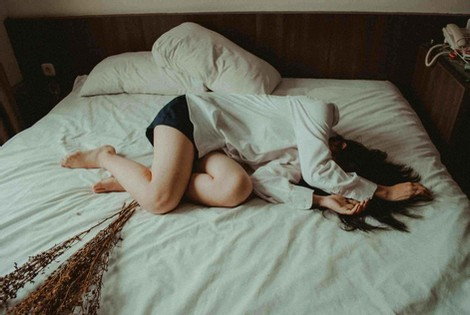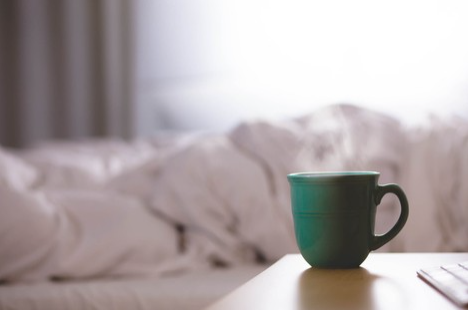5 strategies to a sound nights sleep
The current pandemic has certainly changed the way we live our everyday lives.
It has affected many of our daily routines, and one of its biggest reported impacts has been that on sleep - sleep becomes more elusive when we are anxious! Many people are suffering sleep issues for the first time in their lives:
awake for long periods
unable to fall asleep at all
wake up several times during the night
more intense and emotional dreams
tired and groggy the next morning
find it difficult to concentrate or function properly
feel irritable
1. But good sleep stratagems will help you sleep well and can limit the negative effects of poor sleep.
Try these FIVE hints for calmer and better sleep.
2. Turn off electronics at least an hour before bedtime and make your bedroom as dark as possible.
In the evening, your body releases melatonin, which makes you feel sleepy – but it only releases it if it receives the right signals from your environment. Melatonin is known as the hormone of darkness, so your body doesn’t want to release it until the lights go down. You want to transition to low light as early as 8 or 9pm. Keeping the lights dim before bed cues your brain for sleep.
3. Have structure to your day
Our brains and bodies love structure. Wake, exercise, eat and sleep at similar times each day
4. Focus on your breathing
Think about resting rather than sleeping. Follow your breathing by silently whispering the words ‘in’ and ‘out’ to induce sleep.
5. Try keeping your eyes open in the dark if you can’t sleep
Sounds weird, buts it’s one of my favourites tricks if I am struggling to sleep. Keeping your eyes open in the dark tells your brain that you should be sleeping and triggers a release of melatonin.
6. Take a warm bath or shower at night.
Your body temperature naturally drops at night, starting around 2 hours before you fall asleep and bottoming out around 4-5am. By raising your temperature a degree or 2 with a bath, the drop afterwards is more likely to put you into a deep sleep faster.
One or two hours before bed, try soaking in the tub for 20-40 minutes. Even better, add 2 cups of Epsom salts, 1 cup of baking soda and ten drops of lavender. Make sure you drink plenty of water. Adding Epsom salts which are made of magnesium and sulphate to a bath will also help you to relax and detox as it floods your cells with magnesium
Hypnosis can help many forms of sleep issues and insomnia.
If you are not sleeping well, and traditional treatments are not working, hypnosis may be able to help you sleep the way you deserve. It uses different approaches to induce relaxation, such as focused attention, symptom control and guided imagery. And, unlike sleep medications, it has no side effects, so it can be an aid for those who can’t or don’t want to take sleeping pills.
It can help overcome bedtime restlessness - ease the worry, tension and anxiety that prevent sleep - and can show the way to the deep, restorative sleep that we all need.
To get started, download this complimentary hypnosis recording. And take the first steps on the road to better sleep!


